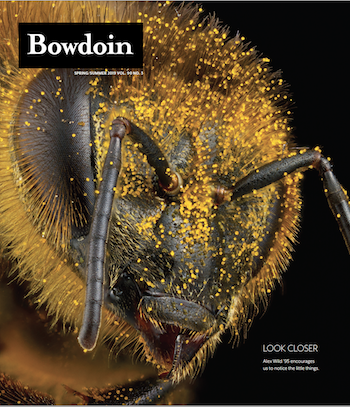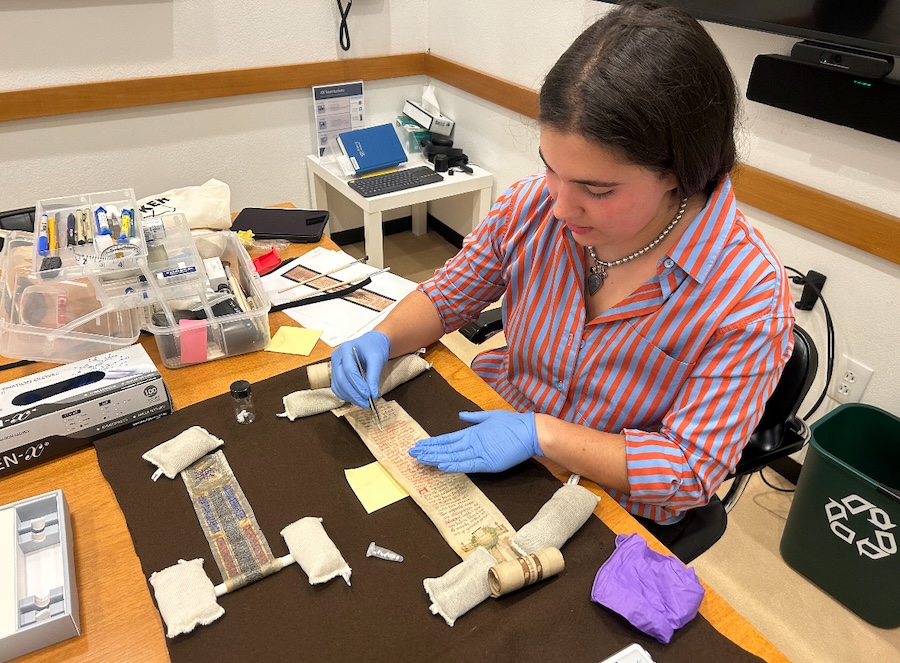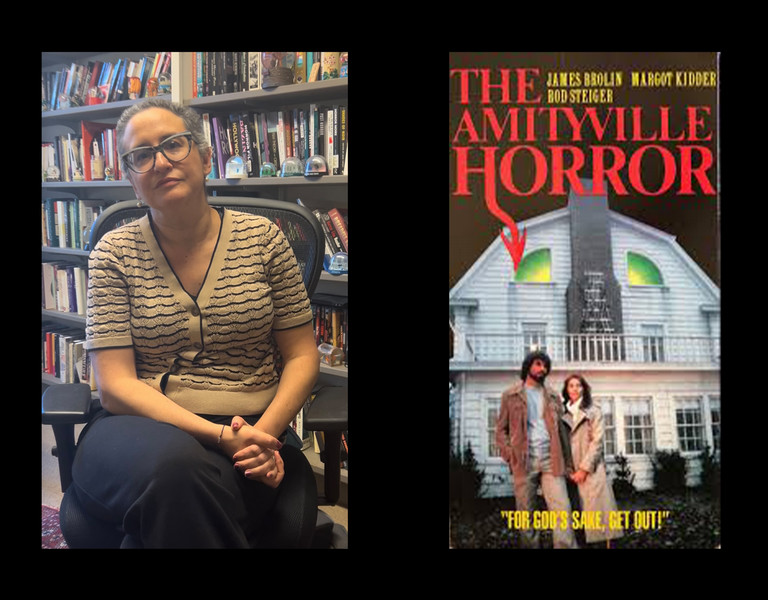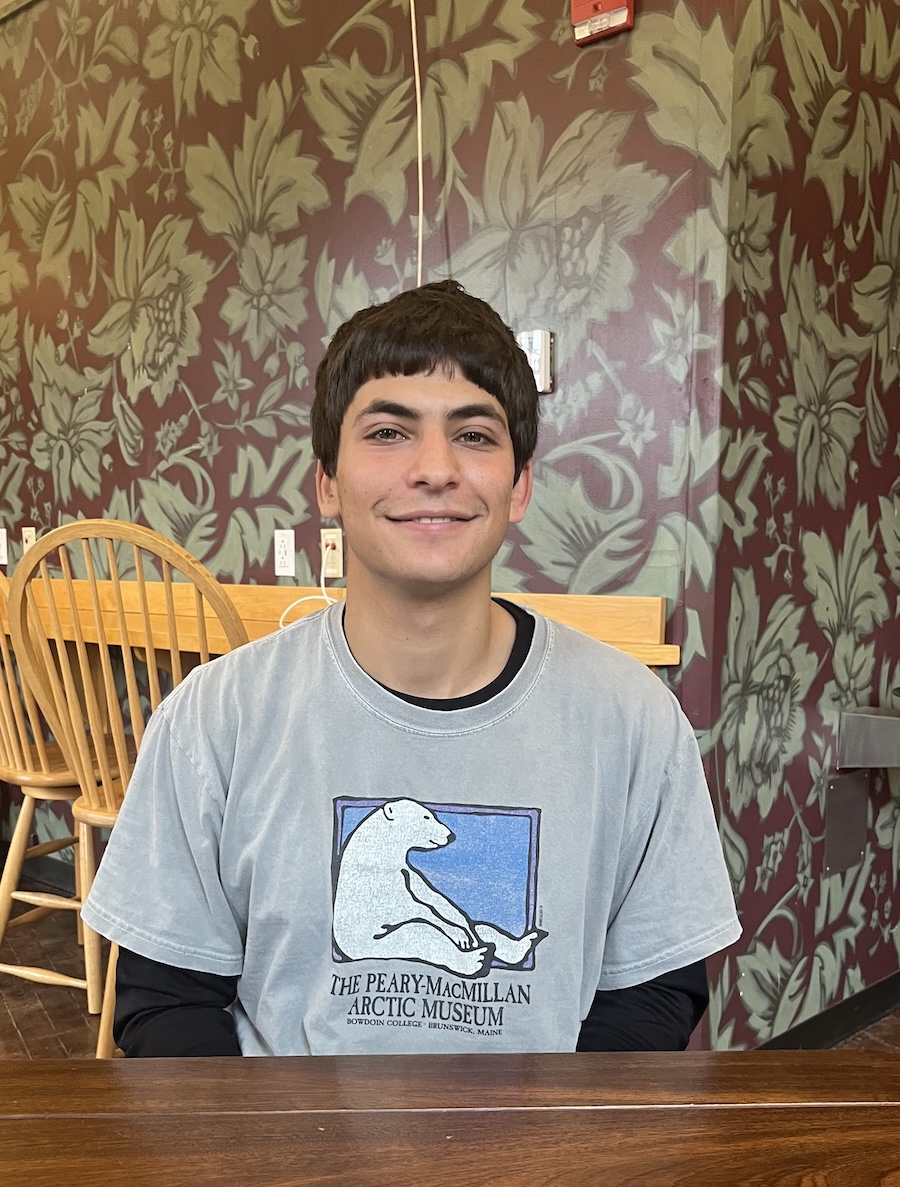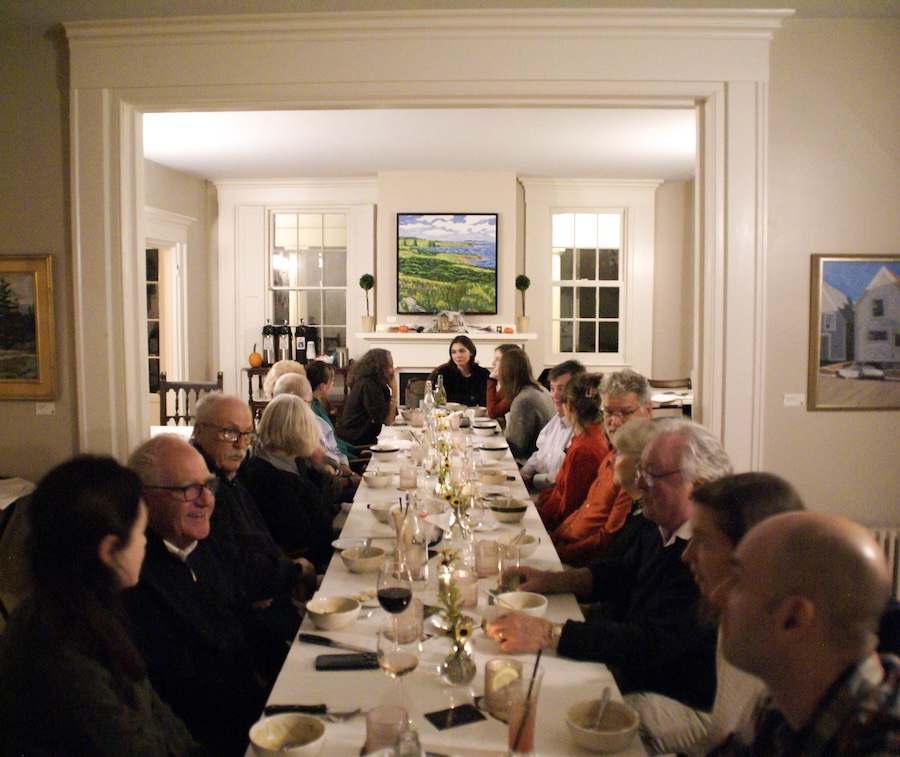Making It New
By Bowdoin MagazineAngela Gabrielle Fabunan ’11 is in a master’s writing program at the University of the Philippines. Her first poetry collection, The Sea That Beckoned, was recently published by Platypus Press.
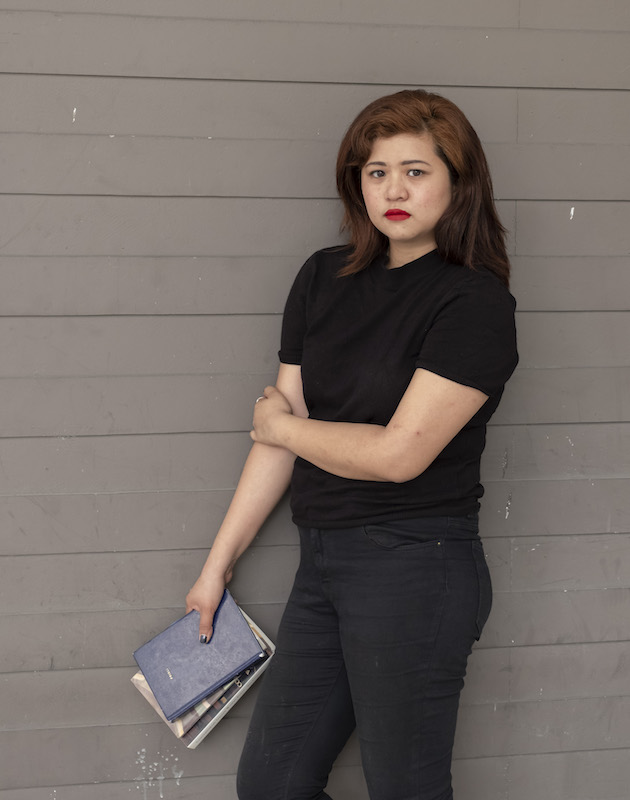
Did you grow up in the Philippines? Tell us a little about your path to Bowdoin.
I was born in provincial Philippines and lived there until I was eight years old. I moved to New York City in the third grade and stayed there until I left for Bowdoin. In 2012, I moved back to the Philippines, moved to Manila, and have been here since.
I learned about Bowdoin through an information session in my New York City high school, High School of American Studies at Lehman College. When I first visited the College, I was enamored with how beautiful the campus was, and how challenging the courses seemed. At first sight, I was hooked!
How did you become interested in poetry and in writing poetry?
My first introduction to poetry was through my third grade teacher, Mrs. Lippman (who has now passed on), during my first year in the States. I was having trouble acclimating to a new culture, and she definitely helped make the transition smoother—by introducing me to poetry. Even early on, poetry became a lifeline for me.
I recall her third grade classroom library in PS 107, in Queens, New York, which had a picture book of Emily Dickinson’s poetry. If I remember correctly, the title was Hope Is the Thing with Feathers. Emily Dickinson was the first poet I ever encountered, and I connected with the terse lines, the lingering effect of her images, and her playful yet demanding tone. Even back then, without knowing the technical aspects of poetry, I connected with her in a visceral, emotional way. Now, as I study the different aspects of how to produce affect, I look back on Emily Dickinson and realize how brilliant she was.
Later on, in high school, I discovered Edna St. Vincent Millay and Allen Ginsberg and other beat poets, and tried to copy their work. In my senior year of high school, I interviewed US Poet Laureate Billy Collins for our literary magazine, Uncommon Sense, and I still have a transcript of that interview. That interview was one of the formative moments in my journey of becoming a writer. I remember him saying in the interview that the way to write was always to read more, read better.
So, I suppose I’ve been interested in poetry since the third grade, but didn’t really start seriously writing until college and in the master’s program.
Do you recall the first poem you wrote?
I’m a big fan of journaling, and I’ve kept journals since the fifth grade. Fortunately, I can look at those journals again. The first poem I ever wrote was “The Ocean,” in October 1999. My mom always told me to date my poems, so I can look back and remember my trajectory.
Although that’s the first poem I ever wrote, I can say that the first poem I actually liked was “This City,” written in 2005. It’s about city lights and the tall buildings and the shadows they make, and the smallness of the individual within the cityscape.
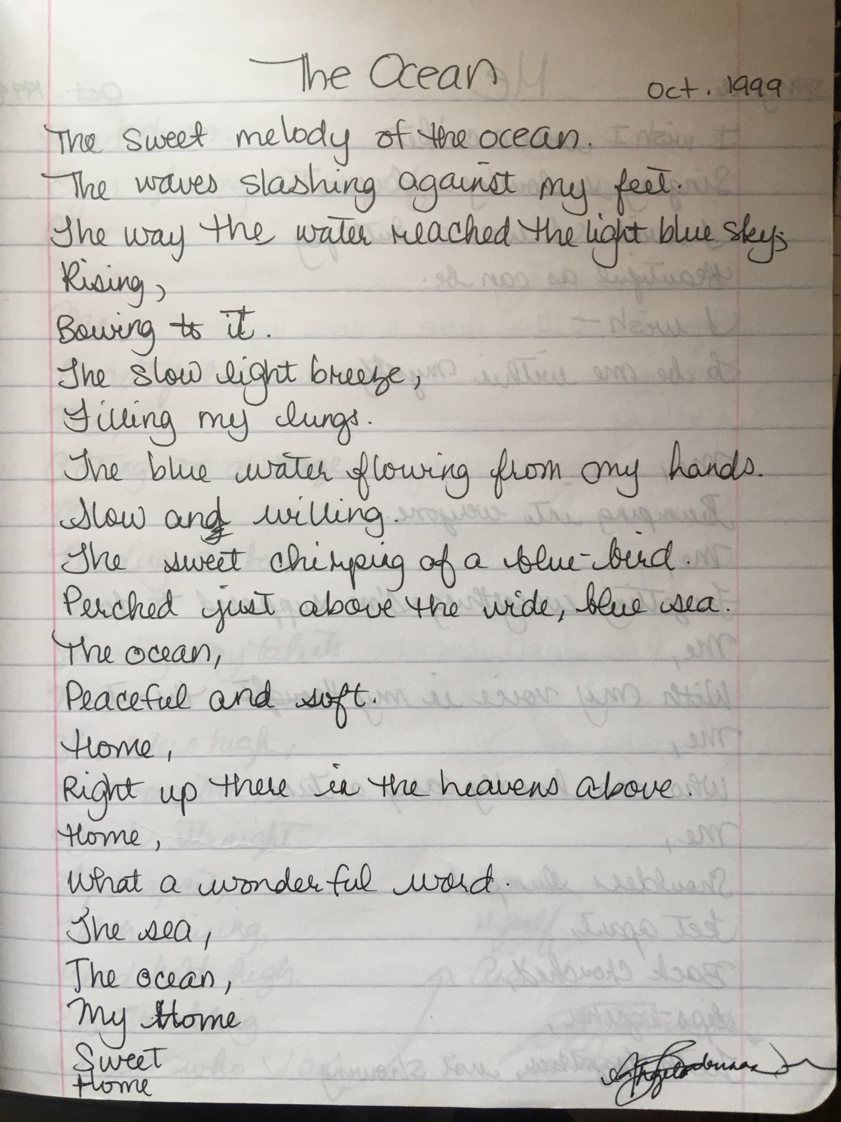
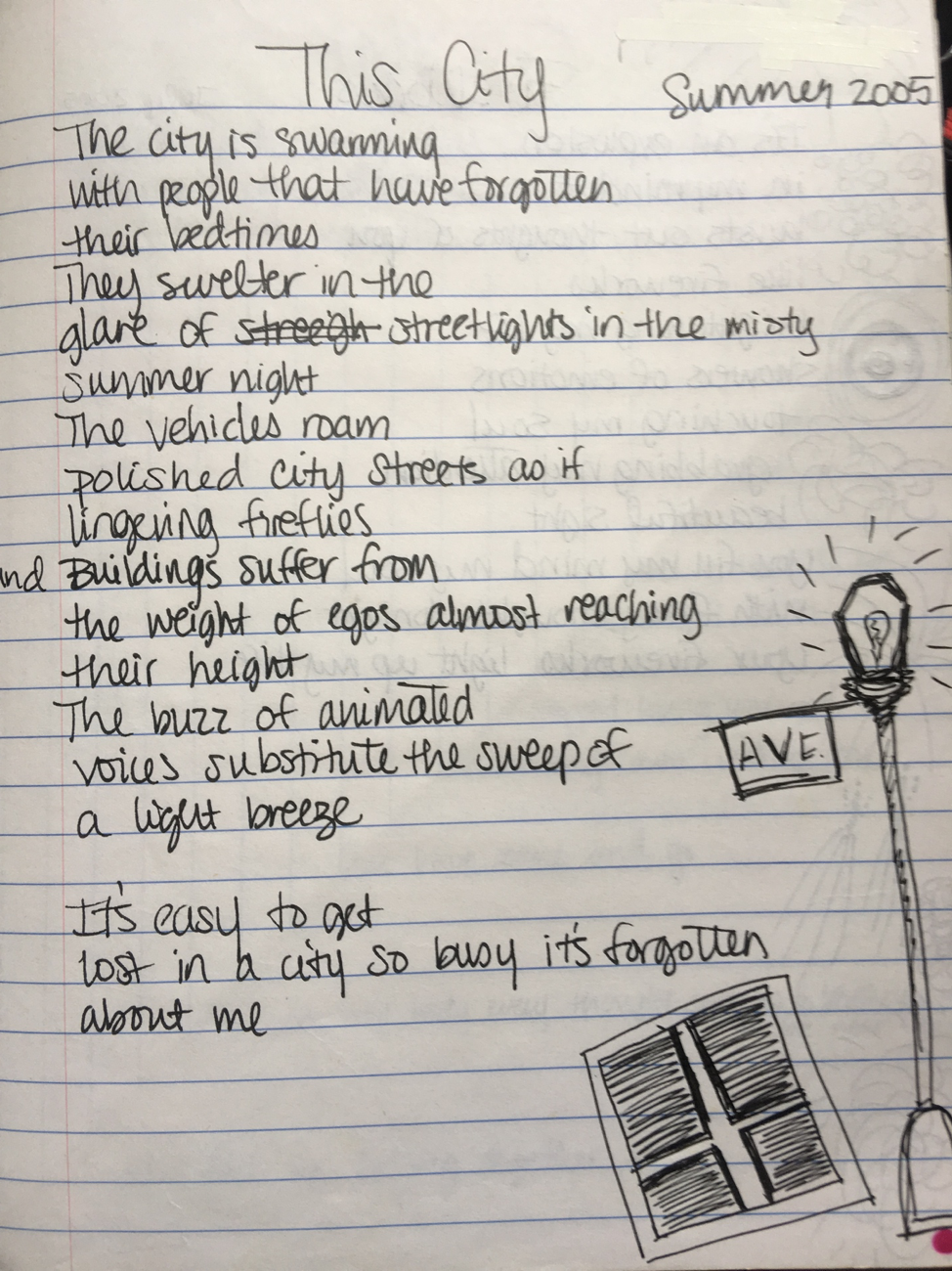
What was your involvement with poetry while you were at Bowdoin and did it shape your current path?
One of the classes I took at Bowdoin was with Writer-in-Residence Anthony Walton. In that class, he introduced me to contemporary poets Louise Glück, Robert Hass, and Sharon Olds, and they remain some of my favorite poets to this day. One of my favorite stories I tell of my time at Bowdoin is when I was told over and over during the course of Anthony’s class that each of the poems I wrote “had the potential to be a poem.” Toward the end of the semester, desperate for validation that I was in the right path, I locked myself in the science building for about a day, and emerged with all of six lines:
Autumn
she faces
lost
breath
phases—
loss
of breath.
When I handed in my draft, Anthony told me, “Now, this is a poem.” I was beyond belief, and I thought, “Ok, this is what I’m meant to do.”
I took other classes at Bowdoin that introduced me to Sylvia Plath, Amy Clampitt, Robert Lowell, Elizabeth Bishop, W. H. Auden, Philip Larkin, W. B. Yeats, T. S. Eliot, all of whom have influenced my poetry. And not just poetry, but I was also introduced to other texts written by Dostoevsky, Lady Murasaki, Edward Albee, Tom Stoppard, David Foster Wallace, and Jonathan Franzen, to name a few, that continue to have an effect my writing. My years at Bowdoin were truly formative years, in which I read much and wrote an abysmal little. But, I still think it pays off, because the formation of the literary mind starts from reading thoughts of others that have come before.
What has been the most difficult obstacle for you becoming a poet?
I think no one sets out to become a poet now. Who wants to make no money, live with less, and sustain yourself on words? I’ve had to make do with lots of freelance work in order to make ends meet. On the other hand, poetry is not my hobby. As an esteemed poet and canon-maker here in the Philippines, Gemino Abad, has said, “I believe that writing is a vocation, which literally means a calling. It isn’t a diversion, an avocation, a pleasant way of spending one’s leisure. One cannot persevere in writing unless one is convinced one cannot live without writing.” I share that sentiment. But for me, it’s really a straddling of material conditions and the lofty goal that writing can enlighten. It’s a continued negotiation, a space of liminality, and thresholds we must cross over and over again.
That said, my biggest concern in my poetry now is trying to maintain affect without saying the same thing that has already been said. I’m not trying to make something new; everything has already been done, but I think I’m trying to refresh similar thoughts, to react to the current trends in literature and literary theory. Or maybe not. Maybe I’m just writing silly love poems, and that’s okay. I mean, Dickinson did that, Hardy did that, even Auden did that—what else has the power to move everyone in the world but love or its loss? Sometimes I think of it that way.
Another challenge to the “make it new” sentiment of Ezra Pound is trying to find a different voice. It’s a matter of personae, and to make that personae come alive. It’s like building character in fiction. I want this first collection, The Sea That Beckoned, to have a different voice than the next. I want to be able to uncover what other voices my mind holds.
Form is another challenge in writing, but I do consider it a challenge. Whether it be traditional or experimental forms, I’m always curious as to where the poems will lead me.
Every writer must think of their audience, and I’ve been thinking a lot about the people who read my work. Writing does not exist in a vacuum, the Modernists said. I’m wondering now about the function of my work, and what it does for the people who come across it. The instance in which you affect your surroundings, your community, and your world is perhaps the biggest challenge in writing poetry.
What is the most pleasurable aspect about writing for you, and/or what is the most painful/difficult?
I have loved and will always love wordplay. I believe that one word in one context changes in a completely different context, and you as a writer have the power to change the meaning or the tone of a word.
I know writing is not meant to be therapeutic, yet I still believe in the way writing can change your outlook on a particular situation. I still consider my poems to be in the confessional mode, although sometimes my personae changes. I can say that the poems I’m writing now have a different concern than before—than, say, when I was in the fourth grade, of course. Although there are overlaps (I’m still writing about the ocean, for example), I’m exploring those themes in more depth, I’d like to believe.
I think the most painful or difficult part of writing is writing immediately following loss. I don’t think there are words to convey loss. Writing is not therapy. Therapy is therapy. It helps to write to see the bigger picture, or to free-write to just let loose, but it can’t solve your problems. Words can never put on paper the exact event of loss. So, in writing about loss, I have to take a step back and think, “This poem cannot be written at this moment,” and accept it.
Who are some of your poetic and/or literary influences?
I’m going to write a really long thing here:
The poets I’ve been influenced by from my years at Bowdoin are Louise Glück, Robert Hass, Robert Pinsky, Anne Sexton, and Sharon Olds. I’ve also encountered them in my classes at the University of the Philippines (UP). Louise Glück’s Meadowlands was a text that really moved me as a student at Bowdoin, and her collection Wild Iris impacted me quite hugely here in UP. Hart Crane is still an inspiration for me—his whole life, his whole person, his body of work, and alas, his death. Also, Frank O’Hara’s Meditations in an Emergency, a text I loved while I was at Bowdoin, continues to move me in ways I can’t explain. It’s my emergency text, one I reread when I’m going through tough times.
At my time in UP, the English Romantics, such as Keats and Wordsworth, have influenced my creative work, while Shelley’s essays and Wordsworth’s Preface to Lyrical Ballads influenced my thinking about poetics. While Shelley claims the legitimacy of poetry by talking about poets as “the unofficial legislators of the world,” Wordsworth makes it seem so easy by claiming that poetry is “the spontaneous overflow of powerful feelings.” In terms of poetics, I am a huge fan of the flow theory by Csikszentmihalyi. I have often thought of the existence of a muse as much as I have thought about the existence of God (cue in Theresa de Avila’s Interior Castles here, for implicating both the muse and God).
I am an adoring fan of Angela Manalang Gloria, as well as other Filipino poets, such as Jose Garcia Villa (Manalang Gloria’s arch nemesis), Merlinda Bobis, Conchitina Cruz, Louisa Igloria, and Isabela Banzon. They are all part of the canon of Philippine literature in English. I’m still trying to read as many Fil-lit writers in English as I can, and lately I’ve been interested in the works of Shane Carreon. I’m also trying to read as much writing in Filipino as a I can (I can barely read in my native language, but I’m trying.)
The comments I’ve often heard of my poems from workshop are that students are reminded of the confessionals, and indeed Sexton and Plath have been huge influences. I’ve been getting into more female poets lately as well, such as Carolyn Kizer and Mary Jo Bang, and rediscovering Sharon Olds and Mary Oliver.
For the Asian American poets I admire, there are Fil-Ams Joseph O. Legaspi, Eugene Gloria, R. A. Villanueva, Ocean Vuong, Marilyn Chin, Ha Jin, and Viet Thanh Nyugen.
There are many, many more that should be included in this list, but these poets influenced my current preoccupations in the field of poetry.
Tell me a little about your creative process—for instance, do you have a particular writing ritual or writing space?
I write during the day and save the night for personal reflection or for talking to friends. I’ve taken to writing in cafés, which my friends think is stereotypical, but there you have it. I’ve heard of the 3 a.m. habit that Sylvia Plath espoused, and I think it’s admirable to be able to get up in the morning before the chaos of the day to write; alas, I cannot get up that early.
One of the habits I’ve been trying to make lately is to write offline. I think sometimes the interruptions of the internet can make you lose track of the flow of writing. But then again, it’s a trial and error, right?
Mostly, my writing habit is to write whenever and wherever I can. I carry my laptop and a notebook and a pen wherever I go (yes, my bag is heavy), so that I have the luxury to write wherever and whenever. And yes, I still believe writing and even reading is a luxury, especially in a third-world country, where books and writing materials are expensive. Laptops aren’t as much of a necessity as a luxury for a certain class of people.
The creative process comes less from inspiration and mostly from revising. I open my luxurious laptop, look at my files, and ask myself, “How can this poem be improved?” I will look at a certain poem and revise, revise, revise. Sometimes, it’s a poem that fits a particular suite. It’s particularly hard for me to collect poems in order, because the ordering of poems in a way that tells a narrative is difficult. But the poems can’t all be scattered to the wind—in a way, they tell different aspects of the same story, a story I would call mine. So, my creative process mostly entails me looking at first drafts and thinking, “Gosh, these all suck, how can I make them better?”
You’re in a graduate writing program now; tell me a little about your path there and what you’ve been doing since graduation.
I graduated from Bowdoin officially in 2014, although I’m in the Class of 2011. I took some time getting my degree because of personal reasons. I spent my last semester of coursework for Bowdoin College at the University of Santo Tomas, as a study-abroad exchange student. When I finished the coursework in 2014, I thought about going back to the States. Then, my brother Rossano, who is an active member of Philippine organizations and a teacher of Filipino history at St. John’s University, said that I should take an MA at the University of the Philippines. I was a bit lost then, and didn’t really conceive of my identity as a Filipino-American, and he said, “You’ll be able to find out there.” And I did. I enrolled at UP in 2014 and, aside from a few lapses and time-outs (I went to the States for a few months in 2017), I’ve been in the program ever since. I’m graduating, hopefully, in a few years.
It’s interesting now, looking back, that I didn’t know much about my Fil-Am identity and what I really was. I didn’t feel that I belonged in either culture, but I’m comfortable in both. So, the Philippines is where I am presently, but it could always change. Life is transitory.
When you’re not writing, how do you like to spend your time? (What do you do for hobbies, relaxation?)
Poetry is not my hobby. It’s the thing I need to do, and I approach reading poems that way as well.
What are my hobbies? Playing Scrabble. I play the physical board game at my favorite cafè, The Other Room, in Quezon City, in metro Manila. I also more play online with random strangers. That’s both the beauty and the danger of the internet; you can meet so many people there.
I also like to go to the beach when I’m home in Subic Bay, the province where my mom lives. I go to her house every other weekend. We live about twenty-minutes’ walking distance from the bay and the beaches, on either side. The Philippines has beautiful beaches, and the sea calms me.
I’m writing nearly all the time, so I don’t really have many hobbies. I do look out for new music and new plays, and I spend a lot of my spare time with my friends. The power of chika (also referred to as chismis)—which has a negative connotation when translated in English that it does not have as much in the Fiipino: gossip—takes away much of my time. I gather with my friends and “make chika.” There is a definite culture of tita here (“aunt”), the main purveyor of chika because they have the stereotype of sipping their iced teas and spending their time “making chismis/chika” and wailing about the state of the Philippines. Chika is so much a part of Philippine culture that any group of people gathering together is bound to make chika. When I first came to the Philippines, I thought chismis or chika was so dangerous, knowing how crazy gossiping can be. But in a way, it’s a method of orally preserving parts of our culture, handing down these secrets and tales. The Philippines has had a rich history of oral tradition, as opposed to America, that makes chika much more pervasive here.
Is there anything else you’d like to mention that we didn’t ask about?
I’d just like to plug my book, The Sea That Beckoned, which has been released by Platypus Press. As editors and publishers, Michelle Tudor and Peter Barnfather are pretty amazing people. They were so kind to me and really valued and respected my work. I will forever be thankful to them for the thorough critique of my work, as well as the kindness they showed in doing so.
The Sea That Beckoned officially launched on April 26 at the UP Writer’s Club event, Lit Up 10: Tanglaw. Tanglaw means “torch light,” and it was a celebration of women’s writing and activism, and I’m happy to be a part.
